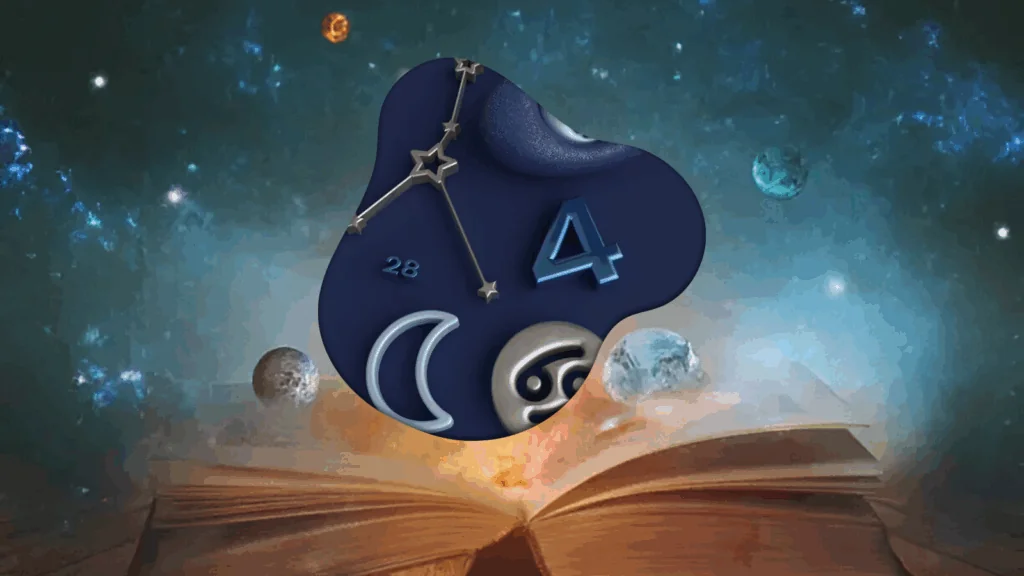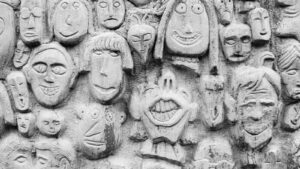The Cosmic Algorithm: Is Free Will Real, or Are We All Slaves to a Super-Intelligent Cosmic Master?

It was a pleasant, ordinary morning in Pune. A family of four was preparing for a drive to Mangaon, a town roughly two and a half hours away. Nothing seemed unusual. They left early to avoid traffic and eased through the inner roads of Pune toward Mulshi, the midway point. The road gradually opened up, traffic thinned after Ghotawade Phata, and the scenery shifted from urban clutter to fresh, hilly terrain. The air turned crisp as they entered the winding stretches of Tamhini Ghat.
Everything felt normal. No warnings. No signs of what lay ahead.
A Destiny Hidden on the Road Ahead
Unbeknownst to them, something had already been set in motion. If there were a cosmic script, destiny was waiting just a few kilometres ahead. The car moved steadily. The husband drove carefully and there was nothing in the environment that suggested any danger. Yet somewhere high up on mountains by the road, a small and random landslide occurred. A boulder weighing around two kilos rolled down, gathering momentum.
For that rock to hit the sunroof of that car at that exact second, many variables had to align. A slight delay in leaving home, heavier traffic earlier in the journey, a slower speed through the curves, or even a gentle tap on the brakes could have altered the entire timeline. But nothing interrupted the sequence. The rock crashed through the glass and killed the woman sitting beside her husband instantly.
If a sniper had to plan such a precision strike, it would have needed years of training and still had a low chance of success. Yet destiny executed it effortlessly. It feels hard to dismiss such events as random coincidence.
The Cosmic Algorithm
When events like these happen with such precision and frequency, it’s natural to wonder if there’s a larger program at play. It is possible that what we call fate or destiny is an algorithm far beyond human understanding. It might have been orchestrating countless interconnected actions long before the family even began their journey.
If they were delayed by even a second, the boulder would have missed. This suggests that what we perceive as random may actually be part of an intricate sequence of events stretching far beyond our awareness.
Destiny’s Larger Machinery
Consider another situation: a plane crash. Hundreds of people board an ill-fated flight after weeks of planning. Some book tickets months in advance, some cancel last minute and some barely make it in time to their fate. A few others miss the flight by chance and survive, while sometimes people sleeping safely at home may die when an aircraft crashes into their neighbourhood.
Are these coincidences? Or carefully aligned variables?
The pattern exists not only in tragedy but in success too. Someone builds a massive business empire, becomes world-famous, and is never able to replicate that success again even with the same drive, resources, and capabilities. Examples are everywhere. Most billionaires have not been able to create second or subsequent successful ventures. Next time, another comes from nowhere and becomes the new icon. Maybe the role of one person’s success is simply to trigger something decades later, possibly in the life of their child or someone influenced indirectly.
Success stories glorify individual talent, but no one can truly reproduce another person’s path. You may walk in their exact footsteps and still fail. Perhaps because success itself is assigned, not earned.
A Fragile but Precisely Balanced Universe
The human body is so complex that we barely understand it despite centuries of study. Life on earth is fragile, dependent on precise cosmic conditions. A slight shift in planetary orbit could erase everything, yet here we are, perfectly placed in space, existing for billions of years.
Were we put here to perform a task?
We have knowledge only to the extent needed to function. What lies beyond remains sealed. We don’t know why we exist, cannot defeat death, and do not understand what happens after it. Maybe we are not meant to. Our purpose might be execution, not comprehension.
Perhaps each of us is a line of code. Some hold roles of wealth, leadership, scientific brilliance, or even crime. A criminal may trigger a chain of events required for a larger cosmic outcome. In fact, without criminals and crime, the world would have been a very different place, better? Can’t say. A king, a dictator, a scientist, and a terrorist may all be executing different functions without understanding why.
The Chain Reaction of Human Events
Terror attacks destroy lives, but they also set off responses that reshape nations. A tragedy may lead to new laws, stronger security, inventions, wars, alliances, revolutions. The consequences spread so far and wide that they cannot be traced back to the initial spark.
Who gets credit for change? The hero who rises, the victim who suffered, or the villain who triggered the sequence?
Connections are endless. A boy attends a rock concert. He becomes inspired. He learns music. His music teacher had a daughter.. He falls in love with her. She motivates him to study medicine. He grows up to save the life of a political leader, who later transforms the nation.
Who deserves recognition? The doctor? The leader? The music teacher? The boy’s childhood friend who got concert passes? Or the father of that friend who worked for the fire department and happened to receive those passes?
Meaning often hides in chains we never notice.
The Relativity of Happiness
Happiness is never absolute. It exists only in contrast. A phase that once felt ordinary may later seem blissful when life gets harder. We understand good times only through the lens of bad ones.
The algorithm seems to ensure we never experience permanent satisfaction. It pushes us forward through aspirations and desires. When one is fulfilled, another forms automatically. Even those with unimaginable wealth continue chasing more despite knowing that no lifetime is long enough to spend what they already have.
We stay so occupied fulfilling desires that we rarely question who planted them or why. We simply comply and keep moving.
Controlled Capacity and Assigned Roles
Sometimes we get sudden brilliance at the right moment like cracking an exam, solving a problem, or having a breakthrough idea. Maybe our brains hold far more capacity than we access, and it unlocks only when required by the algorithm. Once the job is done, that capacity shuts off again.
The most knowledgeable people are often not the most powerful. Think of teachers who guide future CEOs yet never build companies themselves. They are facilitators, not executors. Opportunity and luck bypass them, not because they lack ability, but because their role is instructional, not ruling.
If all elements came together – intellect, power, and opportunity – someone might become unstoppable and threaten the algorithm and its master. Perhaps this balance is never allowed, like how enriched uranium is prevented from reaching critical mass.
Nothing powerful is allowed to remain permanent.
The Illusion of Free Will
If everything is so orchestrated, does free will exist? Or is it a convincing illusion that keeps us from questioning the deeper architecture?
If free will were real and repeatable, success could be cloned. Celebrities’ children would inherit their fame by simply applying the same effort. Professors with the knowledge to run companies would become business giants.
But the script assigns roles.
Some sing beautifully yet remain unknown. Others with half the talent rise to the top simply because they were at the right place at the right time. Coincidence becomes too precise and too frequent to feel random.
The algorithm keeps the line moving. It allows us to rise only as far as required for the next link in the chain.
A Program Older Than the Universe
The cosmic algorithm may have existed before the universe itself. It may not be static. It may evolve every moment, combining variables as events unfold. Every event may either set up or respond to another event, extending endlessly into the past and future.
The ultimate purpose remains hidden in the ‘Mind of God’.
ALSO READ | Personality Types and Relationship Compatibility: Why do you click with some and clash with others?
Conclusion: The Cosmic Slave Model
We may be eternal entities living temporary lives. Each life wipes the memory slate clean and assigns new parameters. We serve tasks we don’t understand. Like slaves who once knew only food, work, and sleep, we may only know birth, desire, and death.
Perhaps we exist only because we don’t know why we exist. If we knew, the system might collapse.
Until then, we obey the silent instructions of a master we cannot see, playing our role in the cosmic algorithm, line by line, life after life.










